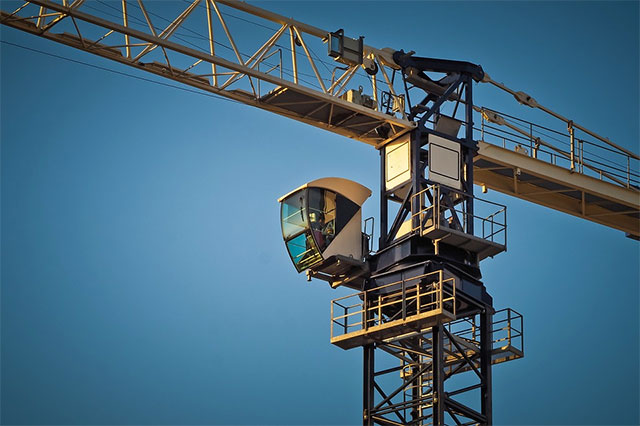Becoming a heavy equipment operator may not be the most glamorous job in the world, but it’s a very steady profession that generally offers strong pay and benefits packages, with the average operator making over $25 per hour or over $50,000 in annual salary. So, many decide to enter the field and attempt to carve out a living as a heavy equipment operator.
However, while working as a heavy equipment operator may pay well and be a desirable job, it can also be extremely dangerous. That’s why governments at both state and federal levels have taken the initiative of requiring heavy equipment safety training to varying degrees. Most notably, crane operators must get certified and employers in the heavy equipment field are required to provide heavy equipment safety training to all their employees.
As a result, employers have begun relying on third-party training programs to include comprehensive heavy equipment safety training as part of their curriculum. Heavy equipment safety training, such as you’d receive at West Coast Training, is essential for a variety of reasons related to the everyday risks associated with the profession and the certification requirements of numerous government entities.

Table of Contents
1. Physical Damage to the Operator and Others
Heavy equipment safety training is generally mandated for those going into the field, and the most important reason is to protect heavy equipment operators from hurting themselves or others. When these machines aren’t operated properly, it could lead to various accidents that could cause serious injuries or even deaths that were completely preventable.
2. Property Damage
In addition to hurting themselves or others, if a heavy equipment operator hasn’t been given proper heavy equipment safety training, their accident could lead to the damage and destruction of valuable property. Whether that means land, pieces of equipment, or even buildings, all these things have the potential to be destroyed if the heavy equipment operator doesn’t know how to exercise the correct safety methods.
The result could be hundreds or even thousands of dollars’ worth of property damage, costing the employer and the property owner a significant sum of money they had not planned on paying or a gigantic increase in insurance premiums.
3. Protection from Legal Liability and Lawsuits
Physically hurting somebody or damaging property by accident are both reasons enough to make heavy equipment safety training incredibly important, but the financial fallout from those potential accidents is worth considering as well. In addition to the human cost of the injuries and the tangible cost of the property damage, the employer could be looking at hundreds or thousands of dollars in liabilities via lawsuits from aggrieved third parties. Any person who was injured or had property destroyed as a result of the careless operation of heavy equipment would undoubtedly be looking for financial restitution.
4. Government Mandates
State and local governments have made heavy equipment safety training mandatory, subjecting companies to fines and shutdowns should they choose not to comply. As an example, OSHA now requires all forklift users in warehousing and distribution centers to get certified. Plus, construction projects almost always require heavy equipment like backhoes, loaders, dozers, excavators, cranes, and lifts. Lifts require government licensing if they’re to be used to lift employees.
It’s critical for employees to know differences in safety procedures between using telehandlers and using forklifts. Safety training for heavy equipment provides guidelines on that, as well as teaching heavy equipment operators what is necessary to comply with NIOSH and OSHA details on safety practices for operators. This entails numerous basic safety equipment, including sturdy work pants and shirts, reflective vests, hard hats, ear protection, work gloves, safety footwear, and seatbelts. It’s also important to remember that there are likely to be additional compliance regulations above and beyond NIOSH or OSHA rules in each state because every state has different terrain
In addition to all other concerns, the fear of being punished by regulators is another important reason companies employing heavy equipment operators should ensure all of their operators have received the proper heavy equipment safety training from a top-of-the-line training program. Punishment can vary from expensive fines to being forced to shut down completely, so it’s unquestionably in the best interest of any company using heavy equipment to ensure that its operators are trained in and comply with the safety regulations they must abide by.
5. Saving Money
Improper safety training can very easily add to the overall cost of any project involving heavy equipment. Equipment can break and need to be replaced, but also maintenance costs can be greatly affected. Much like when you drive a car, the way you drive and the foresight to take care of the car via measures like tire rotations and oil changes can keep the car running smoothly for much longer.
In that same vein, a heavy equipment operator who knows proper safety measures can keep equipment running smoothly and avoid unnecessarily wearing it out and forcing it to be replaced earlier than it should.
Heavy equipment safety training classes teach both safety and efficiency, as in many ways, they go hand in hand. This is because if the heavy equipment operator doesn’t understand the technical side of the machinery they’re operating, not only could it cause costly maintenance issues, but it could also force the operator to take far more time to complete the job than necessary. If that occurs, the job could go over budget and run well past schedule, which would incur further costs because it would keep the contractor from moving on to the next job for a fresh paycheck.
As the saying goes, time is money. The need for proper heavy equipment safety training for operators is important in avoiding extra costs and time spent on a job.











Leave a Reply